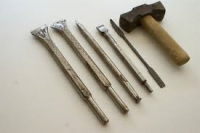Difference between revisions of "LGBTQ Sculptors"
| Line 7: | Line 7: | ||
When one considers the art of sculpting, it usually takes the form of statuary or busts. However, many LGBTQ sculptors are noted for their elaborate work in creating civic constructions (such as fountains and adornments to bridges) and domestic accoutrements (such as elaborate bowls or candlesticks in silver and bronze). | When one considers the art of sculpting, it usually takes the form of statuary or busts. However, many LGBTQ sculptors are noted for their elaborate work in creating civic constructions (such as fountains and adornments to bridges) and domestic accoutrements (such as elaborate bowls or candlesticks in silver and bronze). | ||
| − | We have identified LGBTQ sculptors | + | We have identified LGBTQ sculptors hailing from Germany, France, Italy, Canada, Australia, the United States, Israel, Denmark, Russia, India, Switzerland, the Netherlands, and Great Britain. Most of these individuals were, or are, highly regarded artists and were, or are, acknowledged as such during their lifetimes by receiving national recognitions. They each have fascinating biographies attached to them. |
* [[Louise Abbema]], United States | * [[Louise Abbema]], United States | ||
Revision as of 19:44, 27 December 2016
The act of sculpting has been a traditional artistic field of expertise throughout many generations. The ability of the artist to take the hard elements of marble, terracotta, steel, bronze, or stone and create from them emotional pieces of art which the viewer can appreciate and connect to is a difficult and precise skill.
The LGBTQ community has been an active and notable participant in this artistic field for many generations. Early LGBTQ classical sculptors include Buonarroti Michelangelo (commonly known simply as Michelangelo) and Antonio Canova, but they have been followed by others such as Harriet Hosmer (who is credited with opening the contemporary field to women) and Robert Pruitt (notable for his statue of fellow artist Andy Warhol). There have been few barriers to entry within the profession, and hence there are an equal number of notable women and men throughout. Similarly, there is little in the way of cultural, racial, or geographical restriction.
When one considers the art of sculpting, it usually takes the form of statuary or busts. However, many LGBTQ sculptors are noted for their elaborate work in creating civic constructions (such as fountains and adornments to bridges) and domestic accoutrements (such as elaborate bowls or candlesticks in silver and bronze).
We have identified LGBTQ sculptors hailing from Germany, France, Italy, Canada, Australia, the United States, Israel, Denmark, Russia, India, Switzerland, the Netherlands, and Great Britain. Most of these individuals were, or are, highly regarded artists and were, or are, acknowledged as such during their lifetimes by receiving national recognitions. They each have fascinating biographies attached to them.
- Louise Abbema, United States
- Andrey Bartenev, Russia
- Richmond Barthe, United States
- Rosa Bonheur, France
- Antonio Canova, Italy
- Benvenuto Cellini, Italy
- Anne Seymour Damer, Great Britain
- Francois Duquesnoy, Netherlands
- Jerome Duquesnoy, Netherlands
- Vincenzo Gemito, Italy
- Maggi Hambling, Great Britain
- Adolf Hildebrand, Germany
- Jonathan Horowitz, United States
- Harriet Hosmer, United States
- Robert Indiana, United States
- Jehangir Jani, India
- Jasper Johns, United States
- Ellsworth Kelly, United States
- Count Eigil Knuth, Denmark
- Edmonia Lewis, United States
- Mary Lloyd, Great Britain
- Attila Richard Lukacs, Canada
- Buonarroti Michelangelo, Italy
- Dora Ohlfsen, Australia
- Charles Pachter, Canada
- Jack Pierson, United States
- Robert Pruitt, United States
- Ugo Rondinone, Switzerland
- Jehoshua Rozenman, Israel
- Nils Santesson, Sweden
- Renee Sintenis, Germany
- Emma Stebbins, United States
- Paul Thek, United States
- Una Troubridge, Great Britain
- Robert Wilson, United States
- Christa Winsloe, Germany

